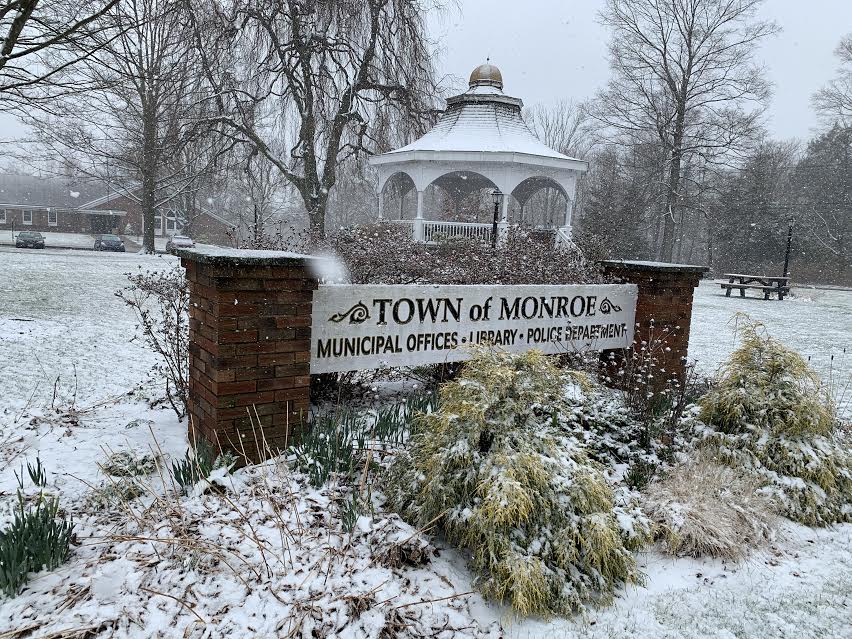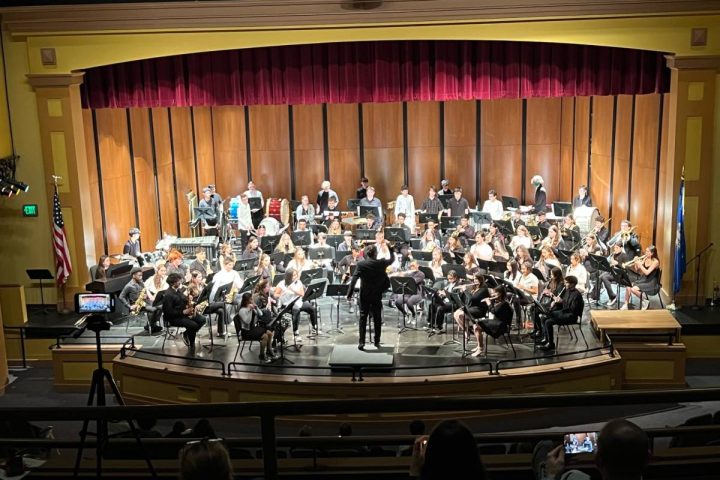MONROE, Conn. — Monroe has a history of contentious budget battles, with it taking over five referendum votes for townspeople to adopt a fiscal plan some years. But this year there will be no referendum at all.
To avoid financial uncertainty and promote social distancing due to the coronavirus pandemic, Gov. Ned Lamont issued an executive order requiring a town’s “budget-making authority” to approve budgets and set mill rates, rather than having a town meeting or referendum vote.
In Monroe’s case, the 2020-21 budget will be decided by the Board of Finance.
“I’m always a strong supporter of our voters having the final say on the budget, but these are highly unusual times we are in,” First Selectman Ken Kellogg said Monday.
The $91.5 million town budget proposal for fiscal year 2020-21 carries a projected 2.6 percent tax increase. It has $59.5 million for education and $31.9 million for town services.
Kellogg said he assumes the decision on the executive order was not made lightly, adding the governor is trying to do everything he can to protect the public health care system by avoiding a surge of people who need acute care at once.
“This is all about slowing the rate of transmission down, so that there are less people in need of these critical resources at the same time,” Kellogg said. “Even if there is a small percentage of people who need critical care, if it all happens at once in creates a significant burden on our health care system.”
Kellogg said he participated in a meeting in which lawyers for the Connecticut Council of Municipalities said the governor’s order makes approving budgets without a referendum “mandatory and not persuasive.”
The Council of Small Towns also said it is a requirement, according to Kellogg.
Opportunity for public input
While there will not be a budget referendum this year, Kellogg stressed there will be ample time for residents to have public input in the process, before the Board of Finance renders a final decision on the budget.
“The public will have a voice, but it is going to be highly unusual that there will not be a final vote,” he said of not having a referendum.
He said all meeting agendas will have instructions on how to access it remotely. Kellogg said the town website will also have the ability for residents to submit comments.
“People will still be able to listen in, at minimum, at public meetings and provide input,” he said. “I’m committed to having as many means possible to allow input.”
A rash decision?
The Monroe Democratic Town Committee’s executive board issued a statement about the governor’s executive order calling the action “premature”:
We are deeply troubled by the precedent set by the Governor’s Executive Order suspending local budget referenda. COVID-19 is changing hourly – can we say for a fact that it would be too dangerous to the general public health to schedule the referendum for early June? The Governor has moved the state’s Democratic and Republican presidential primaries to June 2 – what a great opportunity to vote in the primary and on the budget on the same day at the same time.
We believe it’s too premature to cancel it outright all together and give the adoption of the budget to the Board of Finance. We understand the Governor’s order, but it is dangerous to our democracy and can create a slippery slope.
Another option would be to mail absentee applications to all Monroe voters to send back. There are other options to protect citizens’ right to vote. Let’s hope that November’s election is still intact – whether it be in person or by mail.
Of the presidential primaries being pushed off, Kellogg said, “our Town Clerk and registrars of voters told me they were getting very little guidance on how they could safely conduct voting.”
Board of Finance Chairman Michael Manjos said, “we don’t have time to set up electronic voting, but hopefully this will wake us up to the need.”
Nick Kapoor, a Democrat serving on the Board of Education, said he would rather vote by absentee.
Susan Koneff, the former Democratic registrar of voters, said a problem with electronic voting is there are no ballots for hand counts should a close election require a recount.
“I would not support electronic voting,” she said. “I remember when Susan Bysiewicz was secretary of the state. We tried out different machines and didn’t like electronic ones. We should follow states like California, who allow mail in ballots.”
Koneff said she understands how the conditions warrant extreme measures, but added there’s no reason to not allow absentee balloting.
“I just worry about November,” she said. “Are they going to cancel the primary? They should prepare for mail in ballots for the primary now and it can extend to November, so we’ll be prepared.”
A ‘new normal’
Town Council Chairwoman Enid Lipeles and her husband, Ralph, moved to Monroe 55 years ago. “We’ve never had anything like this before,” she said. “This is unbelievable. People are going to be looking at the stock market and worrying if they can pay their taxes.”
Though voters will not have the final say on the budget that is adopted, Lipeles expressed confidence that Kellogg, a fellow Republican, and the Board of Finance will trim the budget where possible.
“I think we’ll be as honest and fiscally conservative as we can, because there are people who are out of work, who are going to have trouble paying these bills,” she said, adding of the cancelation of the referendum, “you can’t go out. It’s a new normal.”
“We’re in unprecedented territory,” Council Vice Chairman Sean O’Rourke, a Republican, agreed, “and to a large degree, what we can and can’t do is being legislated beyond the municipality as far as state and local.”
“Of course the budget referendum has a rich history here in Monroe and we want to pursue and continue that, but with the governor’s restrictions, we can’t do it this time around,” O’Rourke added.
“Personally, I think it’s alarming that we would suspend voting,” Koneff said. “We in town pride ourselves on our ability to have a real say in our budget. We’re one of the few towns left with a referendum.”
Out of their hands
Dee Dee Martin, a Democrat and longtime member of the Town Council, said of Monroe not having a referendum this spring, “Most people in Monroe, I think, treasure the referendum process with the ability for their opinion to be heard. I think that is important to a lot of people in this community and it’s what they’re used to.”
“This process is going to be so strange for people,” she said. “They will feel the decision is taken out of their hands. In the past, they’ve always felt that they had a say in the process. That’s being removed and shifted to a few people. I’m just disappointed that the governor didn’t wait longer. Wouldn’t there be a possibility to do this at the same time as the primary?”
Lipeles said she believes the budget process will last until at least most of April. Martin expressed her hope residents will call members of the Town Council, Board of Finance and Board of Education to let them know their feelings.
“I think we have a very long history of budget referendums in Monroe,” Kapoor said. “I understand the governor’s order, and of course public health is of the utmost importance above everything. However, we live in America and in America we get to vote.”
“I am struggling. I am very, very much struggling with this, because we need to make sure everybody is physically safe,” he continued. “I just wish the governor didn’t cancel it outright so early.”
“Second guessing those who have to make decisions for the greater populace is always very tricky,” O’Rourke said. “I suppose it’s better to be more conservative and safe than not. Hopefully it’s a one off and we’ll hit the reset button and not see this again in our lifetime. We could have our yearly battles and things can go back to normal.”






